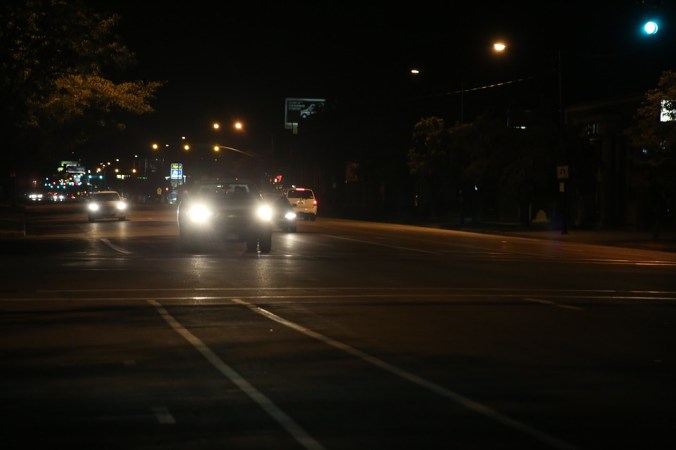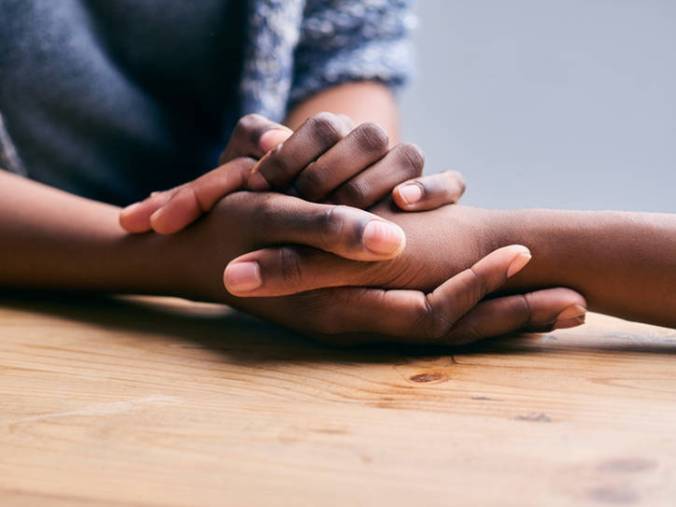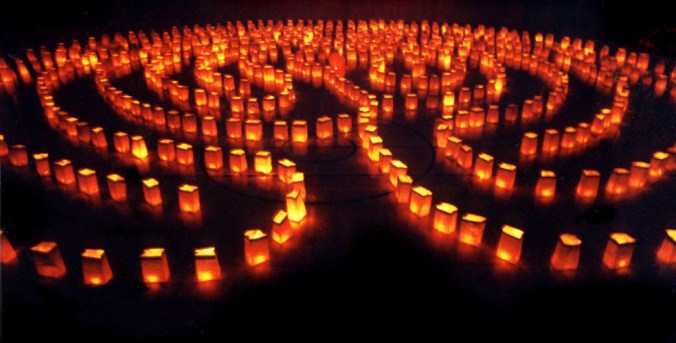An unfortunate foreword:
I started drafting this essay years ago, probably sometime in grad school, I don’t really remember. What I do remember is this—that after the tragedy in Charleston, I wanted to write something on the topic of violence, so I started with the words that open this story. Six months later, after the shock of San Bernardino, it felt like a personal shortcoming to realize I’d never finished, and somehow this reflected a lot of other good intensions and that was sobering and sad. But it was after Orlando that the darkest of resignations settled in, and I realized that I could probably just wait for the next shooting to happen, that we would continue to kill each other en masse for as long as we were wounded and had the tools required to destroy human life. This essay does not hold the answer (if it did I’d be sharing it elsewhere and more urgently), but I hope it holds a lesson. I know it has for me.

On the evening of December 21st, 2012, I was driving through the heart of Kansas City at high speed. The week had just finished, autumn was at a close, Winter Solstice had arrived, and the world as I knew it was about to end, at least according to the predictions of the Mayan calendar, which I didn’t really believe, but also couldn’t dismiss. (My rationality has never quite crushed superstition.)
In recognition of the occasion, my friends were throwing a party. They are the sort of people who are always throwing parties, and if there was one to mark the end of all time, then they were the couple to host it, and there would likely be a playlist and themed food to boot. The event had been set up on Facebook since the previous winter. The sky was black December, and what had been the shortest, sharpest day of the year was now ending in the longest, darkest night.
It had been a week since Sandyhook. A week since twenty tiny lives had been snuffed out by bullets.
I remember physically shaking when I heard the news on NPR, as I drove from the gym to my office in Liberty, my stomach tightening into a fist and my heart picking up speed. I wanted to cry, scream, and be silent all at once. I wanted to wreak destruction and make amends. I wanted to undo the damage. And I wanted to wrap my arms around the boyfriend I had yelled at days before, to tell him I was sorry for whatever I’d said the last time we talked on the phone. But he was thousands of miles and several time zones away. So I sat there with Sandyhook, and cried.

A week later, he was sitting beside me as I sped through Kansas City, taking the best route I knew from the airport to the party where the apocalypse was waiting. While we were driving, I mentioned something about Sandyhook, about how hard it had hit me and how powerless I felt. I attempted to offload unprocessed emotions and use them as leverage for an intimate connection, but this proved to be a poor tactic for bringing us closer together, and somehow it led to a debate about guns.
“But do you think that’s a valid solution, Amanda? How do you back that up?”
I struggled to string words together, but spit back an answer, which he leveled with ease. Backing up my position, which was nascent at best, was not something I wanted to do right then, and the more that I tried, the more frustrated I got.
“You’re not listening,” I told him. “That’s not what I mean.”
He proved me wrong by reciting verbatim the last set of statements I’d just made. He was listening alright, but not for my feelings, not for the things I really wanted to share.
I didn’t want to have a debate, I wanted to make a connection. I wanted something about the bigness of wrongness of the issue at hand to push the tension between us into the backseat.
I don’t know what he wanted, and I didn’t bother to ask. So there we were, sitting side by side for the first time in months, fighting over guns. Fighting over laws and words and the minutia of meaning. Fighting over semantics. Fighting to be right. Fighting to be heard.
I wish I could present you with a transcription of that conversation, with something that would prove that I was right and he was wrong, but I can’t even remember the positions we held, because the argument we had wasn’t really about guns. It wasn’t even about semantics. The debate that boiled over in the car that evening was one that we’d been having for months, and it had more to do with understanding and respect than it did with platforms or positions. One of us insisted on being heard before she would listen, while the other prioritized analysis over emotion and rightness over understanding. It was the sort of disagreement that nobody wins.
By the time we reached the house, any of the pleasure we’d found in each other’s company had been replaced with the stench of animosity, which I was ready to leave in the car. It would still be there when we returned. Or if we were lucky, maybe it wouldn’t.
He, on the other hand, refused to come inside, not wanting to be in such a foul mood around people with whom he wasn’t angry. So I left him in the car and crossed the long walk in the dark by myself, wiped my boots on the mat, and snuck in through the back door.
The house was in a self-imposed black out, decorated with small altars of canned food and candles, accompanied by an assortment of rusted-out weapons in the case of a zombie apocalypse. I greeted my friends, who were dressed in overalls and flannel, and poured a glass of wine. Then I poured another. I explained that my partner was out in the car and could speak for himself if and when he chose to come in. His decisions weren’t my responsibility, at least that was how I saw it.
Eventually he did join us, but we didn’t exactly apologize. Instead, we spent the evening making connections with everyone else, which is an easier task than mending your own fences.
We are all guilty of these same kinds of personal fissure, each of us at fault for the darkness in the world. We all choose to be heard before making an effort to listen. We ask to be seen before we’re willing to look. We insist on being right. We insist on being first. We insist on being favored. We evaluate relationships based on what we gain rather than what we can learn or give, willing to discard connections that fail to live up to our standards or seem to demand more than they’re worth. We do this with people we don’t even know. We do this with the ones we know best.

The festival of Winter Solstice, which dates back farther than history can track, is a celebration of promise. It holds the hope that the world will not end, that after this darkest of days and longest of nights, the sun will slowly return. There will be light. There will be spring. There will be life coming back to the land, if only we can last through the evening.
That night in Kansas City the world did not end. The sun rose, a new day began, and my boyfriend and I ate breakfast together before driving to my parents’ house to celebrate Christmas, another celebration that reminds us that we hold hope for a world that will someday be restored, that will someday be whole, that will someday know peace. On Christmas Eve, two days later, we ate dinner and opened gifts and watched movies wrapped in blankets. We said we were sorry. We even forgave. There was enough hope to make it through the end of the season, but not to maintain our relationship.
My New Year started with a fissure in my heart, a fracture that splintered and spread through my soul. It taught me something about pain that I could learn no other way, and something about hope that I still don’t know how to articulate. Because over thousands of deaths and dozens of tragedies later, here we are, still pushing and yelling and fighting with each other, and yet, each day the sun keeps on rising.
Last summer, I was sitting in church getting ready to sink in and listen to a sermon when I first heard the news of the massacre in Orlando. That time, I did not want to cry or scream or be silent, and I did not want to fight about guns. I really did want to do anything at all.
But that evening I drove to the airport to pick up the man I was dating at the time, because that is what you do when you care about someone. Even when you are on the other side of the Bay. Even when it is late at night and you’re longing for your bed. Even when you haven’t spoken for days and you don’t know what it means and a part of you thinks you should just let him take public transportation because that’s what he was planning on anyhow. Even when you think maybe he deserves something less, you get up and you drive because doing something right for someone you love, even and especially when it is hard, makes it easier to do it again. It makes it easier to do something right for someone you don’t even know, for someone who may even hate you.
Until we learn to choose someone else over ourselves, until we decide it is better to be kind than it is to be right, until we start with love instead of starting with likemindedness, we will continue to fight about semantics, we will continue to fight with and about and because of the damage done by guns. I do not know what it will take to stop this, but I know that we cannot continue as we have and expect that the outcome will ever be any different.

Last Monday I checked Facebook before getting out of bed, and when I came to a post from my little sister that said, “Praying for the Las Vegas community,” the first thought that crossed my mind was, “Shit. What happened now?”
I took a sobering trip through my newsfeed from the past several hours and sat there, stunned. As stories unfolded of students and children and families and friends, my heart sank low from the gravity of shock and with the weight of lost life. How could one person cause so much destruction? Why is this something we do to ourselves?
I went to work, I did my job, and later that day, I slathered pita with hummus and shared dinner with a friend, which seemed like the right thing to do—to look for connection when the world seems to be falling apart. The meal started off well and the discussion was good, but it ended with a conversation that hit me like a punch in the gut and left me wondering why I bother with the hazard of being honest, of putting my real and naked self out there, knowing how easy it is to get hurt.
And I think maybe it is the same reason that I drove to the airport a year earlier. Because opening yourself is a skill that is learned, and doing it once, even and especially when it might result in rejection, makes it easier to do it again. Establishing understanding with someone you like makes it easier to do so with someone you don’t even know, with someone who may even hate you.

Maybe there is a solution to violence and pain and injustice that is less personally challenging and more broadly impactful than the practice of vulnerability. Maybe legislation and punishment are part of that answer. Maybe there is another explanation that we haven’t considered. But if we cannot love the enemy who lives beside us or make peace with the person who in the passenger seat, how can we ask for a world where the outsider feels welcomed? Where the stranger feels loved? Where there is the possibility of peaceful resolution?
It is not an answer. It is not enough. But it is something. If we cannot resolve conflict with the people we love, people we have chosen to care for and involve in our lives, what makes us think we can do the hard work of establishing connection with the people who oppose us?
If we do not do our part in bringing the light, how can we hope for the darkness to end?